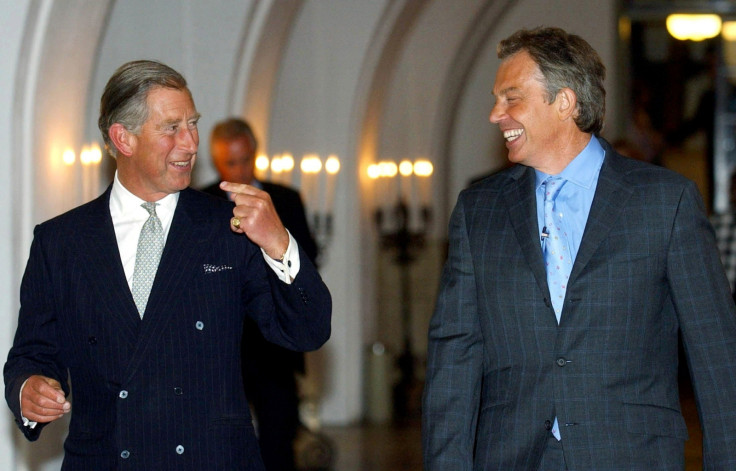Prince Charles 'spider letters': Supreme Court rules secret correspondence should be published
Britain's most senior judge Lord Neuberger of Abbotsbury dismissed an appeal by the attorney general.

Prince Charles faces embarrassment after the Supreme Court dismissed the government's appeal to suppress secret letters that allegedly reveal the future king lobbied former ministers.
Britain's most senior judge Lord Neuberger of Abbotsbury dismissed an appeal by the attorney general that the letters be concealed, paving the way for the prince's correspondence - dubbed the 'spider letters' after his handwriting - to be made public.
The decision is a victory for The Guardian newspaper, which had campaigned for the letters to be released under freedom of information laws.
In a blow to the government, the court judgement read: "The Supreme Court dismisses the Attorney General's appeal.
"By a majority of 5:2 the Court considers that the Attorney General was not entitled to issue a certificate under section 53 FOIA 2000 in the manner that he did and therefore that the Certificate was invalid."
Reacting to the judgement, Clarence House said it was "disappointed" that privacy had not been upheld.
Prime Minister David Cameron, who had backed efforts to ban publication, said in a statement: "This is a disappointing judgement and we will now consider how to release these letters.
"This is about the principle that senior members of the Royal Family are able to express their views to government confidentially. I think most people would agree this is fair enough."
A 2012 tribunal ruled that the 27 pieces of correspondence between the future monarch and ministers from Tony Blair's government should be made public.
The then attorney general, Dominic Grieve, however, blocked the publication of the letters, by overruling the tribunal.
But today five out of the seven judges in the court ruled in favour of the Guardian newspaper, which has fought for 10 years to have the letters released on public interest grounds.
The Sun reported on Wednesday that David Cameron has told Charles that he will attempt to change the law to prevent the letters ever being released.
Monarchy and politics
A cornerstone of Britain's constitution is that as Head of State, the monarchy exercises political neutrality and as heir to the throne, this unwritten rule also applies to Prince Charles.
This is because the monarch's Government will be formed from whichever party can command a majority in the House of Commons.
After hereditary peers were abolished in 1999, the Dukes of Edinburgh, York, Gloucester and Kent became eligible to vote. However, to maintain neutrality they do not exercise that right.
Other members of the Royal Family are required to preserve their political neutrality so as not to embarrass The Queen
Source: www.royal.gov.uk
© Copyright IBTimes 2024. All rights reserved.






